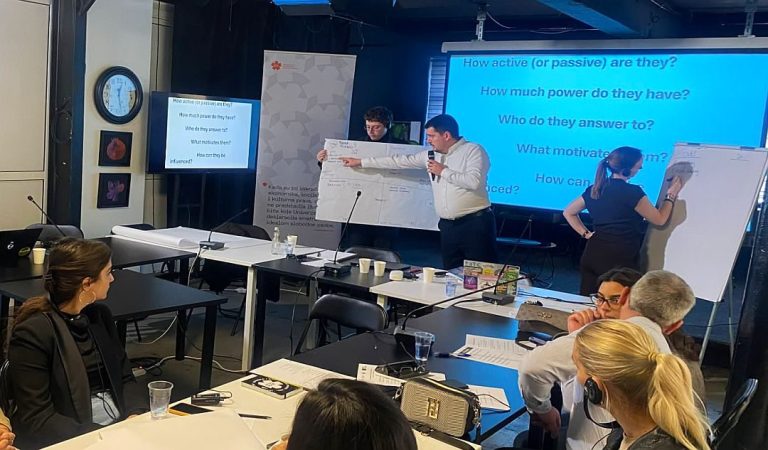Implementation of digital technologies in public administration is not a trend present excusively in Serbia. Regionally, and even globally, we observe a number of innovations aimed at “bringing order” and preventing various alleged abuses of budget funds. This calls for a broader and louder reaction from the community, which is aware that insufficiently transparent technology can diminish rights. These are all conclusions from an expert discussion organized by the A 11 Initiative in Belgrade.
On December 5, our team brought together researchers, professors, activists, and experts in digital technologies to share findings and experiences related to the Social Card system, implemented in 2022 following the adoption of the Social Card Law.
In his introductory speech, our program coordinator, Danilo Ćurčić, outlined the history of the adoption of the Social Card Law, narrative accompanying its adoption, and numerous negative consequences that followed immediately after its implementation. He emphasized that, to this day, the public has no insight into the algorithm that the information system relies on, which dictates semi-automatic decision-making when granting financial social assistance.
He reminded attendees of the initiative to constitutionally challenge the Social Card Law and the amicus brief submitted by the global initiative ESCR-Net to the Constitutional Court of Serbia, but with no progress so far.
[ngg src=”galleries” ids=”33″ display=”basic_slideshow” arrows=”1″ transition_style=”slide”]
Participants shared their experiences with digital technologies in countries they live in. We learned that neighboring Montenegro lacks capacity for responsible processing of citizens’ data, and that problems begin much earlier than the development and implementation of algorithmic technology.
Experts agreed that many governments in Europe, which are taking repressive measures, promote a narrative that socially vulnerable citizens are entitled solely to a specific, limited amount of financial social assistance and other benefits, which can be described as repression shaped as efficiency. Such narratives are present in the Netherlands, France, Spain, and other countries.
This discussion is part of activities on our project “Strategic Litigation Against Digital Surveillance of Social Protection in Serbia,” financially supported by the Digital Freedom Fund.



